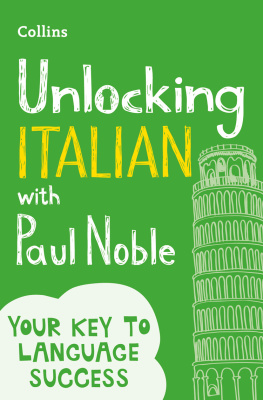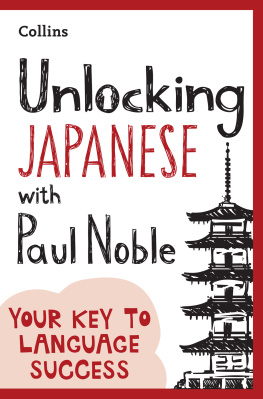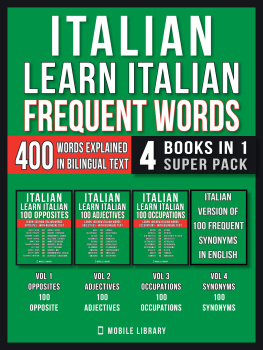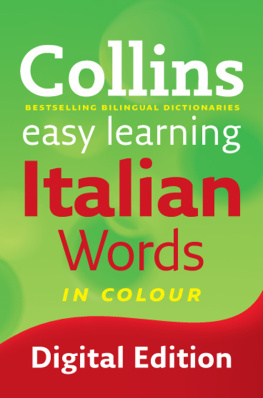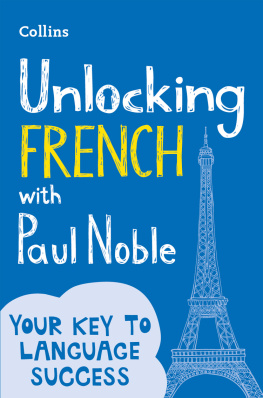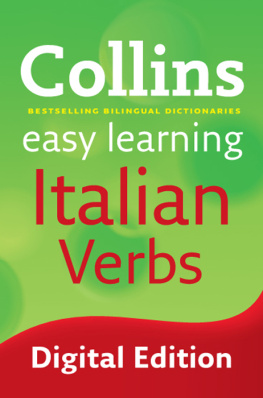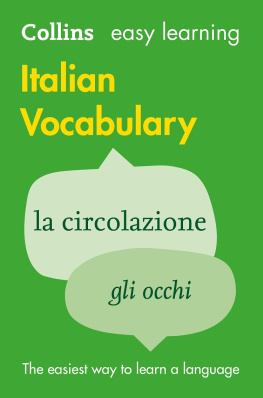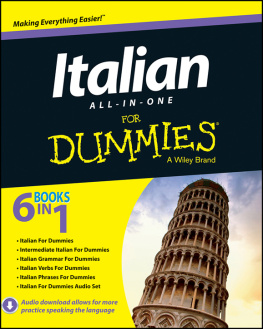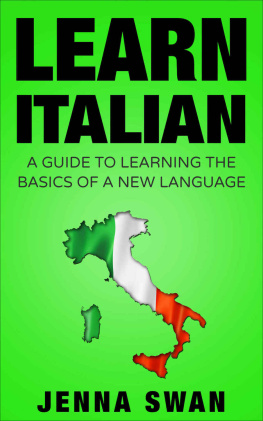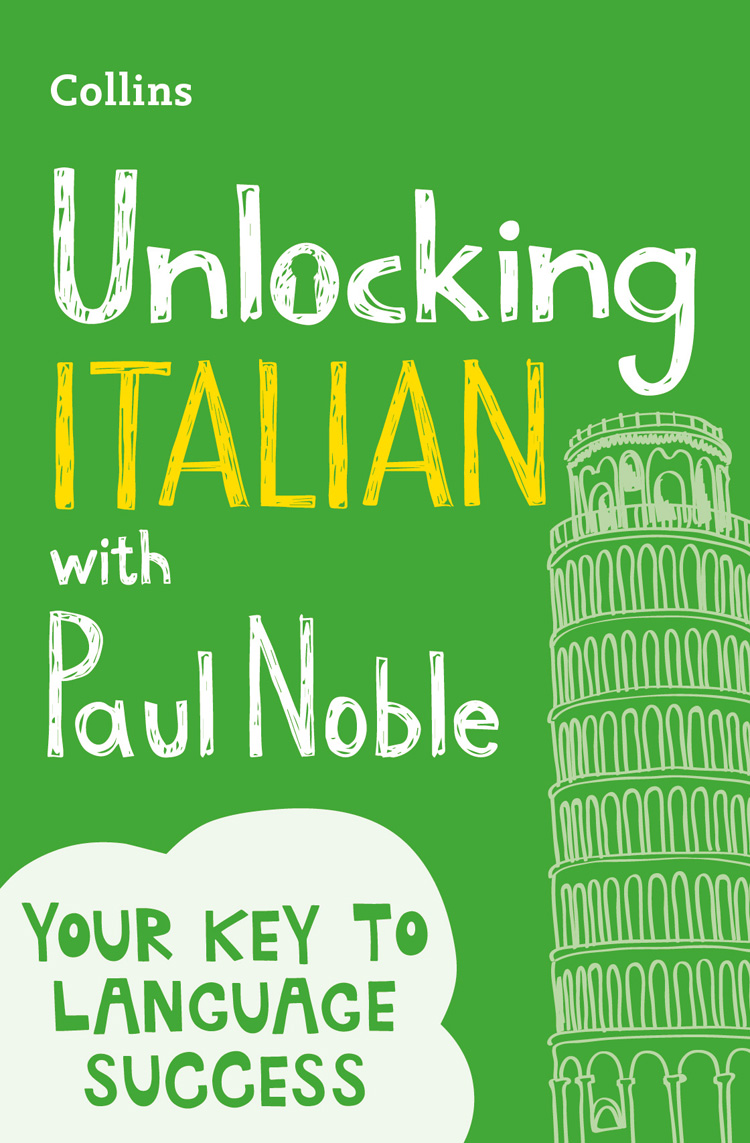People who feel confused by the way languages are normally taught
People who are amazed by just how closely grammer books resemble furniture assembly instructions
People who studied Italian at school
People coming back to the language after a break
People whove listened to one of Paul Nobles audio courses
People who havent listened to one of Paul Nobles audio courses
Who is this book for?
People curious about whether they can learn a language
People who didnt study Italian at school
People who didnt like how languages were taught at school
People learning Italian for the first time
People who think they cant learn a foreign language
People who know no Italian at all
People who know some Italian already
Contents
Did you know you already speak Italian?
That you speak it every day? That you read and write it every day? That you use it with your friends, with your family, at work, down the post-office even in the shower when you read the label on the shampoo bottle?
Were you aware of that fact?
Well, even if you werent, its nevertheless true.
Of course, you might not have realised at the time that what you were reading / saying / writing was actually Italian but I can prove to you that it was. Just take a look at these Italian words below but, as you do so, use your thumb to cover the final letter at the end of each word:

As your thumb has hopefully helped you to realise, these are words that exist not only in Italian but also in English. And, in fact, these are by no means isolated examples of words that exist in both Italian and English but rather they are merely the tip of a truly enormous iceberg.
In fact, around half of all English words have close equivalents in Italian. Yes, thats right, half!
If we begin using these words, together with an extremely subtle method that shows you how to put them into sentences in a way thats almost effortless, then becoming a competent Italian speaker becomes really quite easy.
The only thing that you will need to do to make this happen is to follow the three simple rules printed on the following pages. These rules will explain to you how to use this book so that you can begin unlocking the Italian language for yourself in a matter of hours.
Well, what are you waiting for?
Turn the page!
Rule Number 1:
Dont skip anything!
Using this book is extremely simple and highly effective if you follow its three simple rules.
If you dont want to follow them, then I recommend that, instead of reading the book, you use it to prop up a wobbly coffee table, as it wont work if you dont follow the rules. Now get ready because heres the first one!
Each and every little thing in this book has been put where it is, in a very particular order, for a very particular reason. So, if the book asks you to read or do something, then do it! Whos the teacher after all, you or me, eh?
Also, each part of the book builds on and reinforces what came before it. If you start skipping sections, you will end up confused and lost. Instead, you should just take your time and gently work your way through the book at your own pace but without skipping anything!

Step by Step
Rule Number 2:
Dont try to memorise anything!
Trying to jam things into your head is boring and it doesnt work. People often cram for tests and then forget everything the moment they walk out of the exam. Clearly, we dont want that happening here.
Instead, I have designed this book so that any word or idea taught in it will come up multiple times. You dont need to worry about trying to remember or memorise anything because the necessary repetition is actually already built in. In fact, trying to memorise what youre learning is likely to hinder rather than help your progress.
So, just work your way through the book in a relaxed way and, if you happen to forget something, dont worry because, as I say, you will be reminded of it again, multiple times, later on.

Rule Number 3:
Cover up!
No, Im not being a puritan grandmother and telling you to put on a long-sleeved cardigan. Instead, Im asking you to take a bookmark or piece of paper and use it to cover up any green text that you come across as you work your way through the book.
These green bits are the answers to the various riddles, challenges and questions that I will pose as I lead you into the Italian language. If you read these answers without at least trying to work out the solutions first, then the book simply wont work for you.
So, make sure to use something to cover up the bits of green text in the book while you have a go at trying to work out the answers. It doesnt matter if you sometimes get them wrong because it is by trying to think out the answers that you will learn how to use the language.
Trust me on this, you will see that it works from the very first page!
Take a look at the page on the right to see how to use your bookmark or piece of paper to cover up correctly.
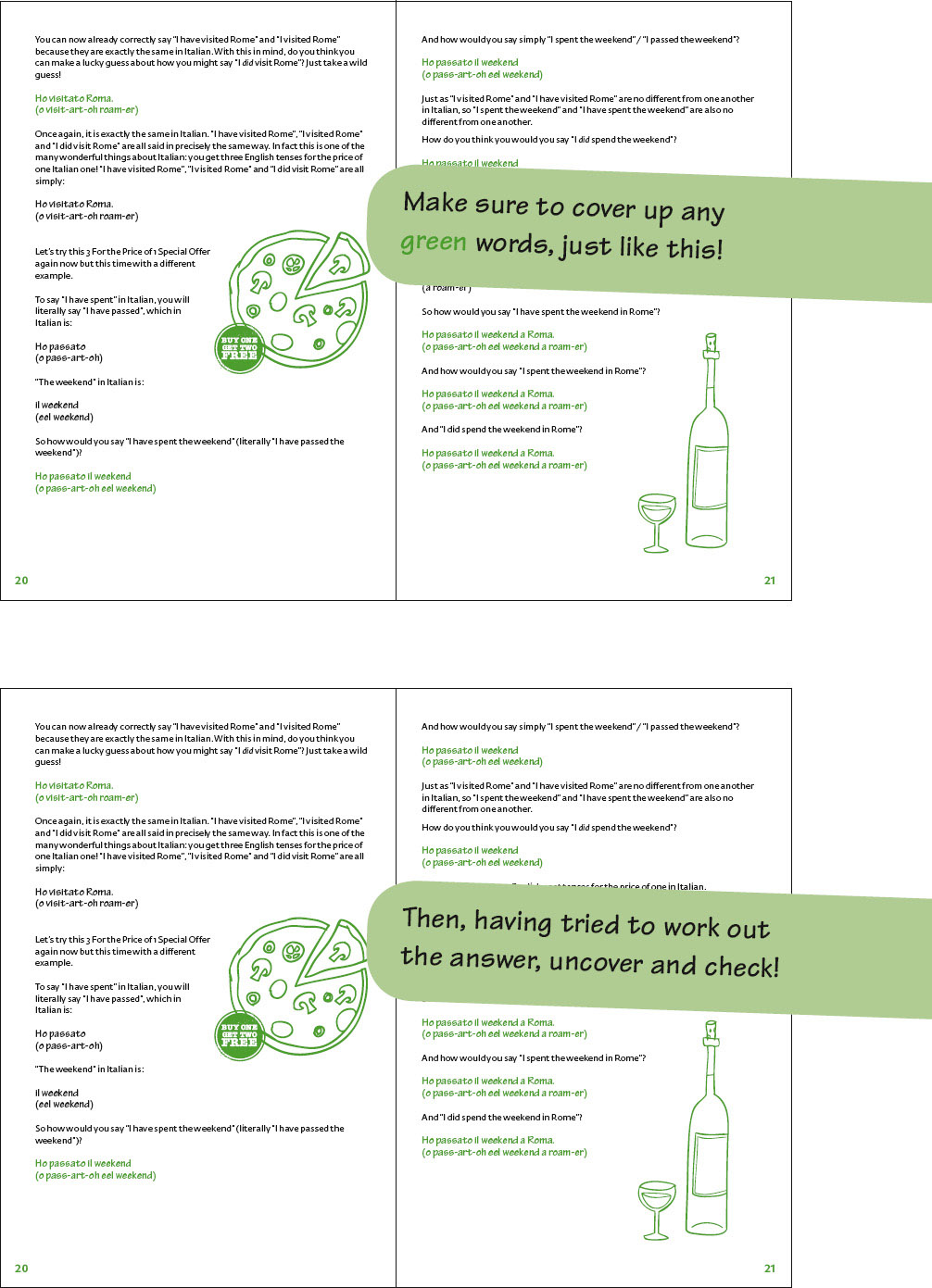
I spent the weekend in Rome and wow, the weather was fantastic. Not such a complicated sentence in English, is it? Or is it?
I have taught many people over the years, ranging from those who know no Italian at all, through to those who may have studied Italian for several years at school. Yet whether they have studied the language before or not, almost none of them tend to be able to construct a basic sentence like this when I first meet them.
Admittedly, they might know how to say other far less useful things, like: Im 37 years old and have two sisters and a goldfish an unusual conversation opener from my perspective but they cant say what they did at the weekend.
Well, in just a few minutes time, you will be able to do this even if youve never learnt any Italian before.
Just remember though: dont skip anything, dont waste your time trying to memorise anything but do use your bookmark to cover up anything green you find on each page.
Okay now, lets begin!
I have in Italian is:
Ho
(pronounced o)
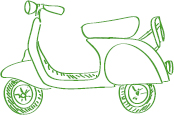
And the word for visited in Italian is:
visitato
With this in mind, how would you say I have visited?

